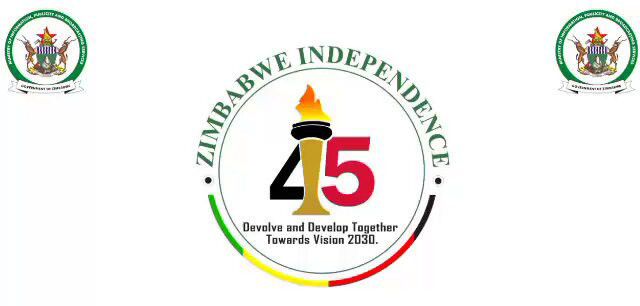
THE launch of a new South African business publication in 2024 might suggest financial media is robust. But it masks a bleaker reality.
Like the broader media industry, financial journalism is struggling to find a sustainable business model in today’s digital landscape. A team of experienced financial journalists from the Financial Mail, Bloomberg and Business Day, including Rob Rose, Giulietta Talevi, Ann Crotty, Shirley de Villiers, Sarah Buitendach and Vernon Wessels launched Currency at the end of September 2024, which they say has “the best writers in financial journalism to make a proper impact”.
Currency is launching into a difficult environment where the cupboard appears bare. Optimistically, the founders thought they would be able to raise enough corporate funding to sustain them for a few years.
That turned out to be far more difficult than they envisaged. And like the rest of the media industry, Currency’s founders are experimenting with various ways to create a viable business, including paid subscriptions, advertising, events and donor funding.
Shifts in news distribution have dealt a severe blow to South Africa’s media landscape. Traditional publications have lost advertising revenue as companies increasingly redirect their marketing budgets to digital giants such as Google and Facebook.
Financial media are not immune to these trends. Audiences have shrunk, or been dispersed across diverse online offerings, while local audiences have easy access to global news, increasing the competition for local media outlets.
Thanks to the digital behemoths, the business model “has changed so significantly that it is very difficult for financial publications to be profitable,” says Ryk van Niekerk, editor of Moneyweb.
“I’m not talking about huge corporate profits; I’m just saying, pay your bills. It’s a game of survival.”
- ‘Nedbank financial instrument listing on VFEX a game-changer’
- Cambria set to sell major stake
- The numbers do not tell whole story
- Non-executive directors fees, retainers.
Keep Reading
The South African news media industry lost almost 70% of its workforce in the past 15 years, according to Daily Maverick estimates. While the number of jobs lost to financial media is not clear, it is significant.
Peter Bruce, editor of Business Day from 2001 to 2015, said he had to “cut journalists” throughout his reign, and when he retired there was only a “fraction” of the original 120 staff he started with.
Van Niekerk says: “When I was at Media24, at the syndicated business publication Sake24, 67 journalists reported to me, and there are only four left now. At Business Report, I think they had pretty much a similar number, 70 maybe even 80. That team has been decimated and I don’t even think there’s a handful left.”
When Van Niekerk joined Moneyweb in 2011, it had nearly 20 experienced journalists and editors. Now, van Niekerk says, it relies heavily on experienced freelancers.
Arena Holdings, which owns the Business Day and Financial Mail, went through another extensive round of retrenchments in late 2023. Now the number of full-time journalists at Financial Mail can be counted on one hand.
One result is consolidation: News24 Business (previously Fin24) has been snapping up some of the most experienced financial journalists, many of them from Business Day and Financial Mail. It has “invested in building out its business desk, which has grown to become one of the biggest and most experienced in the country,” business editor, Helena Wasserman said in 2022.
Should corporates step in?
The importance of financial media to an economy has been well-documented. It holds big business to account, provides timely, accurate information on market trends, policies, and business news, and helps businesses and the public make informed financial decisions.
Given the importance of a strong business media for creating the confidence necessary for investment, is there a case to be made that corporate South Africa should support business media financially? Many believe yes.
In the 2000s, financial journalism “flourished”, says Van Niekerk. At the time, JSE rules required listed companies to publish any price-sensitive information, which included financial results, in one English and one non-English newspaper.
The requirement, which the JSE dropped from 2013, helped to fund a fairly healthy print business media.
Following the rule change, Business Day, the preferred newspaper for many listed companies, experienced a 40% drop in advertising volume, while advertising in the Afrikaans business publication Sake24 dropped by as much as 75%.
“That had a massive impact because the listed company space financed financial journalism and since then it has just declined,” he says.
Business Day is now a shadow of its former self, while Sake24 has been absorbed into the online Netwerk24 business desk.
Some have called on government to mandate that corporates donate a portion of their profits towards financial journalism endeavours, but this could have serious implications for the independence of newsrooms.
Instead, corporate South Africa should voluntarily support business journalism, as good journalism is in its interests. The financial stress has led to some newsrooms trying innovative approaches to raising money.
Van Niekerk is working on a project to create a not-for-profit investigative team to look at investment fraud. His model is straightforward.
“You get corporates to sponsor an amount of money… get six or seven journalists, pay them a decent salary and then investigate investment scams,” he says.
He approached around 30 CEOs of large South African companies, many of them asset managers, to finance the project, as it is in their interests to uncover fraud. He created a blind trust for the companies to contribute to.
However, of the 28 commitments he received from CEOs, only two paid. In the end, the trust had to refund the money.
“We were back to square one… and the thing is if you lose capacity or journalists, you will never get institutional knowledge back,” he says.
Talevi suggests that companies should include the funding of media as part of their corporate social investment efforts, because “if you want an independent, vigorous media, that’s good, where people write great stories, they do the proper research… that doesn’t come for free”.
Businesspeople often complain about the quality of financial journalism, but are not prepared to support its improvement, she adds. The media has demonstrated its important contribution to protecting democracy and uncovering corruption and malfeasance in South Africa through its exposure of state capture.
The media are one of the few institutions left that serve the public without fear or favour. In this way, the media are a vital contribution to the health of our economy — which is essential for corporate South Africa.
Corporate South Africa must acknowledge its responsibility to support the nation’s financial media, recognising the vital role journalism plays in economic transparency and informed decision-making.
But a word of caution: corporations must resist the temptation to influence editorial decisions because they are paying for it. Financial media must remain an independent, vigilant watchdog.
Jones is a financial journalism lecturer at the Wits Centre for Journalism and has over 25 years of financial communication and journalism experience. This commentary was produced with the research assistance of Victoria Hill. This report was first published in State of the Newsroom, a Wits centre for journalism project.











